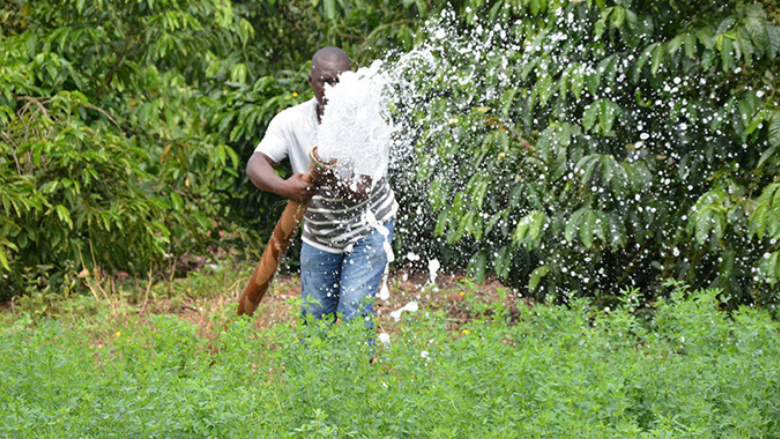
 Rapa FM Pader
Rapa FM Pader

 Rapa FM Pader
Rapa FM Pader
9 September 2024, 08:37

By Lakomekec Kinyera
Pader district officials have confirmed the return of Shs 371.9 million to the treasury after failing to utilise the funds allocated under the Small-Scale Irrigation Project, funded by the Uganda Intergovernmental Fiscal Transfers Program (UgIFT). This decision has sparked significant frustration among local leaders and farmers alike.
UgIFT is a government initiative aimed at improving service delivery in sectors such as education, health, agriculture, and water by enhancing financial support to local governments. However, the project’s failure has left many questioning the effectiveness of its implementation.
According to a report by the Committee of Finance, Planning, and Administration, no contracts were awarded for the irrigation project, leaving Pader’s farmers without the anticipated benefits. Mr. Obua Patrick, the former Secretary for Works and Technical Services and District Councilor for Puranga subcounty, explained that the central government’s involvement in awarding the contract led to delays that ultimately caused the funds to remain unused.
Councilors expressed their discontent with the situation. Acholibur town council district councilor, Mr. Obutu Vincent, voiced his frustration, stating, “It is extremely disheartening that such a substantial amount of money has been returned to the central treasury without serving its intended purpose. This situation raises concerns about possible malpractices and inefficiencies.”
Adding to the chorus of dissatisfaction, Okello Simon, a farmer from Bongtiko subcounty, criticised the district’s failure to mobilise and inform the farming community effectively. “It is very disappointing that such a huge sum has gone to waste,” Okello said. “The lack of proper mobilisation and sensitisation meant that many farmers were unaware of the project and its benefits. If the community had been adequately informed, more people would have participated.”
Okello emphasised the need for improved communication for future projects. “Proper sensitisation must be a priority in any new project to ensure that it is fully embraced by the community and no opportunities are lost.”
Mr. Acaye Phillips, the district’s focal person for the project, defended the program’s initial execution, noting that while it began positively, participation was lower than expected. Farmers were required to co-fund the equipment-20% for solar-powered systems and 75% for generator-powered systems. By the end of the 2023/2024 financial year, only 35 farmers had shown interest, with just 7 completing their payments.
As Pader district grapples with these issues, local leaders and farmers alike are calling for a reassessment of how such projects are managed and communicated, hoping to prevent a repeat of this costly oversight.
The return of Shs 371.9 million from the failed Small-Scale Irrigation Project could significantly impact Pader district. For farmers, it means missed opportunities for improved irrigation and increased agricultural productivity, leading to potential declines in crop yields and income.
The district might face setbacks in its development goals, reduced trust in government programs, and heightened scrutiny over project management. The lack of effective communication and mobilisation undermines community engagement, risking future project failures and diminishing support for similar initiatives.
Overall, the district’s agricultural and economic progress could be hindered, exacerbating existing challenges for local farmers and the broader community.
The Small-Scale Irrigation Program is designed to empower smallholder farmers by allowing them to choose their preferred irrigation technology, co-fund the equipment, and manage its operation and maintenance. The program aims to boost food production and improve livelihoods. However, without proper community engagement and sensitisation, future projects may face similar challenges.